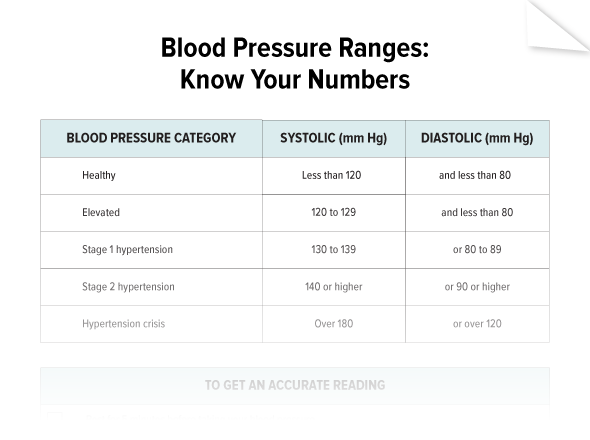Learn what causes high blood pressure and who's at risk.
  |
͏ ͏ ͏ ͏ ͏ ͏ ͏ ͏ ͏ ͏ ͏ ͏ ͏ ͏ ͏ ͏ ͏ ͏ ͏ ͏ ͏ ͏ ͏ ͏ ͏ ͏ ͏ ͏ ͏ ͏ ͏ ͏ ͏ ͏ ͏ ͏ ͏
| | | Welcome to our 3-day series on managing high blood pressure, also known as hypertension. Today, we'll help you understand what blood pressure readings mean, why high blood pressure can be dangerous, and what factors might put you at risk. | | What is blood pressure? | | Blood pressure is the force that moves blood through your circulatory system. It's essential for delivering oxygen and nutrients to your tissues and organs while carrying away waste products. | | Your blood pressure reading consists of two numbers: | | | • | Systolic pressure (top number): This is the pressure in your arteries when your heart beats. | | | | • | Diastolic pressure (bottom number): This is the pressure in your arteries between heartbeats. | | | Understanding your readings | | Blood pressure is measured in millimeters of mercury (mm Hg). We've prepared a chart to show you what the numbers mean, and when they may be too high. Click on the image below to see the full chart: |  | | The 'silent killer' | | High blood pressure is sometimes called the "silent killer" because it typically has no symptoms until severe damage has been done. Half of all American adults have high blood pressure, and many don't know it. | | Without treatment, high blood pressure can damage your: | | | • | heart (leading to heart attack or heart failure) | | | | | | • | kidneys (resulting in kidney disease) | | | | • | eyes (causing vision problems) | | | | • | blood vessels throughout your body | | | Are you at risk? | | Several risk factors increase your risk of developing high blood pressure: | | | • | Age: Risk increases as you get older. | | | | • | Family history: Hypertension tends to run in families. | | | | • | Race and ethnicity: Black Americans have higher rates of hypertension. | | | | • | Weight: Carrying excess weight and having obesity increases risk. | | | | • | Lifestyle factors: A high sodium diet, physical inactivity, alcohol consumption, and smoking all carry increased risk. | | | | • | Other health conditions: Diabetes, kidney disease, and sleep apnea are linked to high blood pressure. | | | You can manage high blood pressure with proper treatment and lifestyle changes. In our next email, we'll cover dietary approaches that can help lower your blood pressure naturally. | | Take action today | | If you haven't had your blood pressure checked recently, now is the time. Many pharmacies offer free blood pressure checks, or you can schedule an appointment with a healthcare professional. | | Find the right doctor to help manage your blood pressure: | | | | | | | | | | Until next time, |  | Take care of yourself, and we'll
see you again soon! | | | | View in browser
Did a friend send you this email? Subscribe here.
To see all newsletters, click here.
Privacy | Unsubscribe
We may feature your messages to our inbox within our content. Please do not provide any personal identifiable information. Replies may be edited for length and clarity. For more, see our Privacy Policy.
Our website services, content, and products are for informational purposes only. Healthline does not provide medical advice, diagnosis, or treatment and should not be used as a substitute for medical advice from a healthcare professional. Healthline encourages you to make any treatment decisions with your healthcare professional.
Every product we recommend has gone through either Healthline's or Optum Now's vetting processes. If you buy through links on this page, we may receive a small commission or other tangible benefit. Healthline has sole editorial control over this newsletter. Potential uses for the products listed here are not health claims made by the manufacturers. Healthline and Optum Now are owned by RVO Health.
© 2025 RVO Health
1101 Red Ventures Drive
Fort Mill, SC 29707 | | | |



Nema komentara:
Objavi komentar